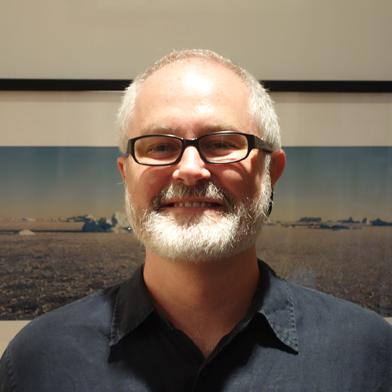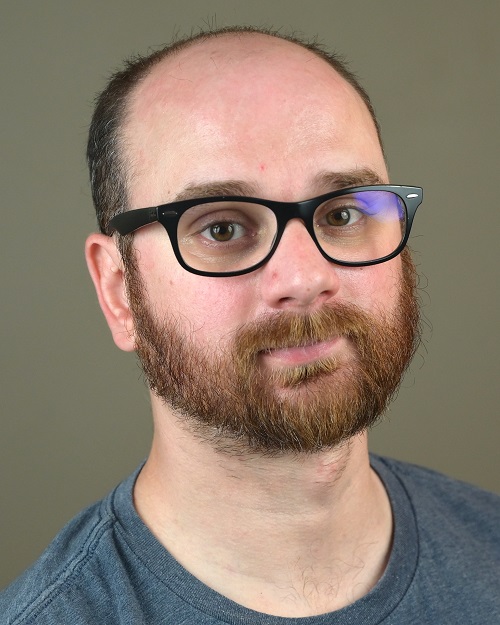Faculty Bios
 Mark Long has taught geography courses in the political science department since 2002, on topics about the European Union, food, and the world’s regions. The majority of those courses have been taught in Charleston, but Long has also led educational excursions through the study abroad program to Germany, the UK and Spain. Dr. Long's courses are primarily concerned with challenging students to understand how the world has changed over recent centuries in ways that structure everything from what we eat, to how we organize politically, to how we see ourselves. Dr. Long received his initial training in European Studies and modern European Languages at the National University of Ireland, Cork, where he also completed his MA in European Studies, with extended study abroad in Spain. He completed his Ph.D. in geography at the University of South Carolina in 2001. His research is concerned with intersections between visual culture and place, and he has published on street art, editorial cartoons and flags. In his work as a curator, Long has curated shows of landscape photography from Antarctica to Afghanistan to the American West by award-winning American and international artists. Recently, he co-curated Southbound: Photographs of and about the New South and Legitimacy of Landscape, an exhibition of Yaakov Israel’s photographs of the Arab Villages in Israel at the Museum for Islamic Art in Jerusalem.
Mark Long has taught geography courses in the political science department since 2002, on topics about the European Union, food, and the world’s regions. The majority of those courses have been taught in Charleston, but Long has also led educational excursions through the study abroad program to Germany, the UK and Spain. Dr. Long's courses are primarily concerned with challenging students to understand how the world has changed over recent centuries in ways that structure everything from what we eat, to how we organize politically, to how we see ourselves. Dr. Long received his initial training in European Studies and modern European Languages at the National University of Ireland, Cork, where he also completed his MA in European Studies, with extended study abroad in Spain. He completed his Ph.D. in geography at the University of South Carolina in 2001. His research is concerned with intersections between visual culture and place, and he has published on street art, editorial cartoons and flags. In his work as a curator, Long has curated shows of landscape photography from Antarctica to Afghanistan to the American West by award-winning American and international artists. Recently, he co-curated Southbound: Photographs of and about the New South and Legitimacy of Landscape, an exhibition of Yaakov Israel’s photographs of the Arab Villages in Israel at the Museum for Islamic Art in Jerusalem.
 Douglas Rivet's interests are focused on the relationship between urban environments, policy, and development and rehabilitation outcomes. With a decade of experience in local government, he teaches courses on urbanization, planning, and applications of geographic information systems.
Douglas Rivet's interests are focused on the relationship between urban environments, policy, and development and rehabilitation outcomes. With a decade of experience in local government, he teaches courses on urbanization, planning, and applications of geographic information systems.
Dr. Rivet received his undergraduate degree in geography from Eastern Michigan University, his M.A. for research on the application of geographic information systems for agricultural disease risk from Western Michigan University, and his Ph.D. from Western University in London, Ontario, Canada where he researched how urban environments influence the travel decisions of children and adults.
Read more about Dr. Rivet on our blog: https://blogs.cofc.edu/polisci/2020/11/03/meet-one-of-our-newest-faculty-dr-douglas-rivet/
 Annette Watson joined the Department of Political Science in 2008, serving undergraduates majoring in political science as well as geography minors, and graduate students in the Masters of Environmental Studies Program. She offers courses on environmental geography, world regional geography, political ecology, Indigenous/Native American studies, and the politics of science.
Annette Watson joined the Department of Political Science in 2008, serving undergraduates majoring in political science as well as geography minors, and graduate students in the Masters of Environmental Studies Program. She offers courses on environmental geography, world regional geography, political ecology, Indigenous/Native American studies, and the politics of science.
Dr. Watson earned her undergraduate degree in human ecology from College of the Atlantic, her master’s degree on the circumpolar north from the University of Alaska-Fairbanks, and her Ph.D. in geography from the University of Minnesota. Her current research focuses on subsistence economies of North America: in Alaska, she has worked with a variety of hunters and fishermen and tribal groups on the politics of natural resource management, and in the Lowcountry she is researching similar subsistence regimes relied upon by the historic residents of the Carolinas. Her most recent published work, co-authored with a Koyukon Athabascan intellectual, articulates indigenous methods of adaptation for wildlife policy in the face of rapid climate change. Articles have appeared in Social and Cultural Geography, the Journal of Environmental Management, Emotion Space and Society, and Wicazo Sa Review. She is also currently at work on articles about the philosophy and ethics of methods in wildlife management, and a study on salmon fisheries conflict in the Yukon River Drainage.
For contact information and a list of affiliated faculty, please see Faculty and Staff Listing page.






